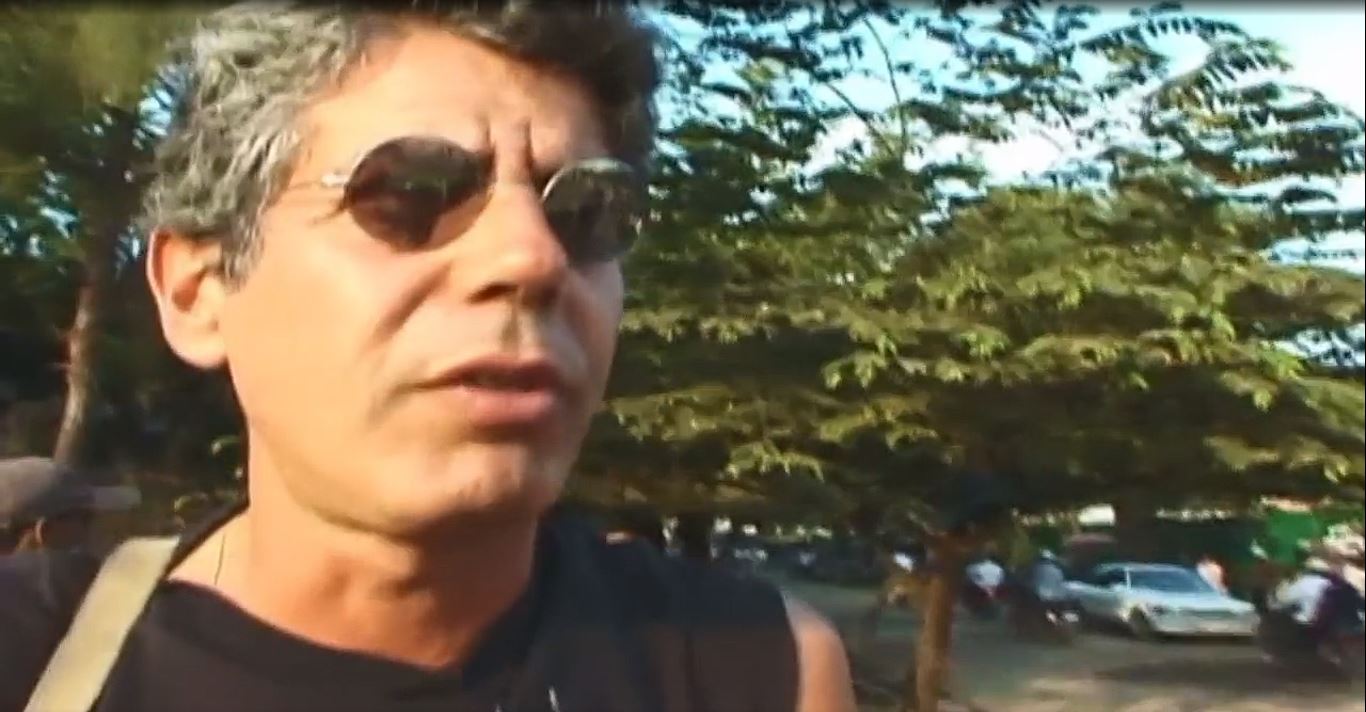The largest city in Metro Manila, Quezon City is home to a number of famous landmarks, historical sites, green parks and top-notch schools. History buffs know of the pivotal events that took place in Quezon City that go deep in the chronicles of the Philippines. Here are some of the historical sites in Quezon City to visit while you are in the country:
Historical Sites in Quezon City: Balintawak
Cry of Balintawak
In 1896, a group of Katipuneros under the leadership of Andres Bonifacio tore their cedulas personales or community tax certificates in defiance to Spanish allegiance. This is known as the Cry of Balintawak, commemorated on August 26 as the National Heroes’ Day in the Philippines.

Cry of Balintawak memorial in Quezon City – photo by Ramon FVelasquez under CC-BY-SA-3.0
Historical Sites in Quezon City: Cubao
Camp General Emilio Aguinaldo
Camp Aguinaldo serves as the military headquarters for the Armed Forces of the Philippines. It was initially called Camp Murphy and occupied by the General Service Battalion of the Philippines Constabulary. In 1965, it was renamed Camp General Emilio Aguinaldo. It was in Camp Aguinaldo where Former Defense Minister Juan Ponce Enrile and Former AFP Vice Chief of Staff Lt. Gen. Fidel V. Ramos announced their resignation from their posts in the Marcos cabinet.

AFP Museum and Multi-Purpose Theater in Camp Aguinaldo – photo by Judgefloro under PD-self
Camp Rafael T. Crame
Popularly called Camp Crame, it serves as the national headquarters for the Philippine National Police (PNP). It was formerly the Philippine Constabulary (PC) national headquarters until the PC was merged with the then Integrated National Police, forming the PNP. The camp was a major detention center during the regime of Ferdinand Marcos and later on became a rallying point during the 1986 EDSA Revolution.

Camp Crame in Quezon City – photo by Patrick Roque under CC BY-SA 4.0
Historical Sites in Quezon City: Diliman
11th World Scout Jamboree Memorial Rotonda
Also called the Boy Scouts Circle, this roundabout in Diliman, Quezon City features a monument in the middle that honors the memory of the Boy Scouts contingent who would have represented the Philippines in the 11th World Scout Jamboree in Greece. However, they were among the casualties of the 1963 United Arab Airlines Flight 869 crash while they were en route to the jamboree.

11th World Scout Jamboree Memorial Rotonda – photo by KisekiLacroix under CC-BY-SA-3.0
Bantayog ng mga Bayani
Bantayog ng mga Bayani (Monument to the Heroes) is a memorial to all those who perished as martyrs during the dictatorial regime of former Philippine President Ferdinand Marcos. The memorial also commemorates all the heroes during that dark time in Philippine history. The memorial includes the Wall of Remembrance, Inang Bayan Monument and the Bantayog Museum.

Wall of Remembrance at the Bantayog ng mga Bayani – photo by Judgefloro under PD-self
Quezon Memorial Circle
This urban park is home to the Quezon Memorial Shrine, a towering monument dedicated to former Philippine President Manuel L. Quezon. Quezon Memorial Circle is also home to two museums: the Quezon Heritage House and the Presidential Car Museum.
READ MORE: INSTAGRAMMABLE PLACES IN ANTIPOLO: 10 PHOTOGRAPHY DESTINATIONS

The Manuel L. Quezon memorial at the Quezon Memorial Circle – photo by MIKELAAGAN under CC-BY-SA-3.0
University of the Philippines – Diliman
The Diliman campus of the University of the Philippines (UP) is well-known for the part it played (and continues to play) in the history of modern Philippines. It was one of the sites for student demonstrations during the Martial Law years of the Marcos administration of the country. The symbol of the University, the Oblation, is also a symbol of nationalism. UP also has several facilities that focus on the history and culture of the country, like the Jorge B. Vargas Museum and the Filipiniana Research Center.

UP Diliman Oblation Plaza – photo by boink_99 under CC BY-SA 2.0
Historical Sites in Quezon City: EDSA
EDSA People Power Monument
Along the Quezon City portion of Epifanio de los Santos Avenue (EDSA) at the junction with White Plains Avenue, one can find the EDSA People Power Monument by renowned Filipino sculptor and artist, Ed Castrillo. The monument is in commemoration of the famous bloodless 1986 People Power Revolution.

People Power Monument at EDSA corner White Plains Avenue, Quezon City – photo by Patrick Roque under GFDL and CC BY-SA 4.0
EDSA Shrine
At another junction along EDSA, this time with Ortigas Avenue, is a celebrated Roman Catholic shrine dedicated to the 1986 People Power Revolution. EDSA Shrine houses a chapel and an art collection featuring the famous peaceful revolt of 1986.

View of EDSA Shrine – photo by Patrick Roque under GFDL and CC BY-SA 3.0
Historical Sites in Quezon City: Tandang Sora
Tandang Sora Shrine
Melchora “Tandang Sora” Aquino is a prominent figure in the Philippine revolution against the Spaniards. She offered medical assistance and shelter to the Katipuneros in spite of her old age. Her remains were initially interred in the Manila North Cemetery before they were transferred to Himlayang Pilipino. Since 2012, the Tandang Sora Shrine has been the home for her remains.
READ MORE: MANILA TRAVEL BLOG: A DESTINATION GUIDE

Tandang Sora National Shrine – photo by MIKELAAGAN under CC-BY-SA-3.0















Comments are closed.